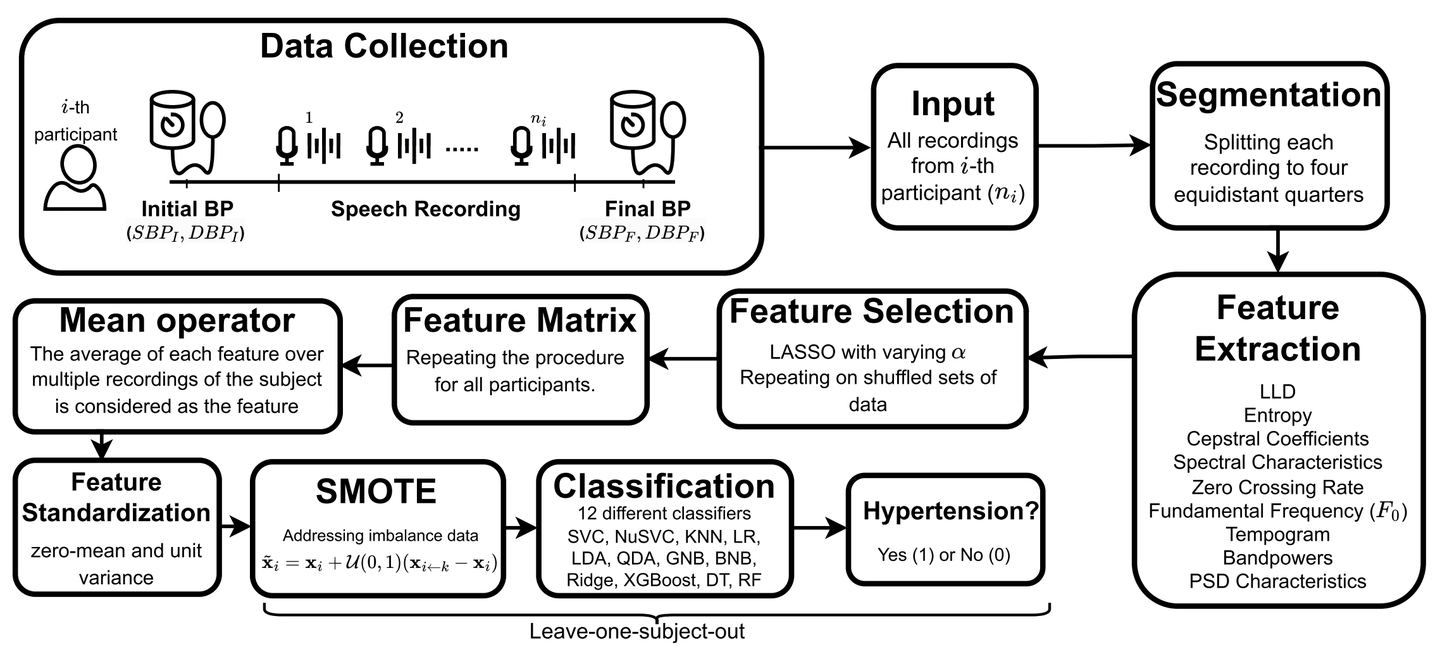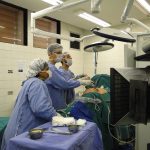
Scientists have found a new way to spot “silent killer” high blood pressure by studying how people speak.
The breakthrough, published in IEEE Access this September, uses artificial intelligence (AI) to spot subtle voice patterns linked to blood pressure levels. The system is as accurate as 84% for women and 77% for men, making it easier for people to check their health at home.
Researchers at Klick Labs studied 245 people who recorded their voices six times a day for two weeks. Their system uses machine learning to spot tiny changes in voice patterns that hint at high blood pressure. These features include pitch changes and speech energy patterns.
“By leveraging various classifiers and establishing gender-based predictive models, we discovered a more accessible way to detect hypertension, which we hope will lead to earlier intervention for this widespread global health issue,” said Yan Fossat, senior vice president of Klick Labs and the study’s lead investigator. “Hypertension can lead to a number of complications, from heart attacks and kidney problems to dementia.”

Overview of the proposed ML-based acoustic model for hypertension screening. Source: IEEE
Current blood pressure tests require specialized equipment and trained staff. This limits access for many people, especially in regions with fewer medical resources. The World Health Organization (WHO) reports that one in four people worldwide have high blood pressure, but half don’t know they have it.
“Voice technology has the potential to exponentially transform healthcare, making it more accessible and affordable, especially for large, underserved populations,” said Jaycee Kaufman, a research scientist at Klick Labs who worked on the study. “Our ongoing research increasingly demonstrates the significant promise of vocal biomarkers in detecting hypertension, diabetes, and a growing list of other health conditions.”
The research expands on Klick Labs’ previous work with voice analysis. In October 2023, they showed their technology could help screen for Type 2 diabetes. Recent findings also revealed connections between blood sugar levels and voice pitch.
The team is now testing the app with more people. They hope that one day, checking for serious health problems could be as easy as talking on a phone. This could help catch problems early before they lead to heart attacks or other health issues.
They also plan to work with hospitals worldwide to make the technology available to more people. While challenges remain in ensuring widespread adoption and addressing ethical concerns, this innovation could empower millions with early detection tools and promote better health outcomes globally.


















